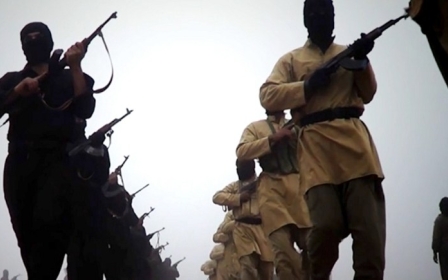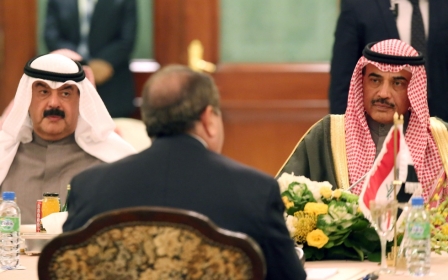Obama does not need Congress' approval for Iraq strikes

US President Barack Obama does not need the approval of Congress to intervene militarily in Iraq, a top Republican congressman has said.
Senate Minority Leader Mitch McConnell made the statement following a meeting between Obama and top US lawmakers on Wednesday evening.
Obama has been mulling over his Iraq strategy since militant group Islamic State in Iraq and the Levant (ISIL) last took control of major city Mosul and other areas, in a conflict which has since taken on the dimensions of an anti-government or sectarian uprising.
Iraqi Foreign Minister Hoshyar Zebari on Wednesday officially asked the US to carry out air strikes in the country’s north where the anti-government offensive has been the strongest.
While there has been repeated chatter about the possibility of using US drones to target ISIL and other affiliated groups, Obama has until now stayed relatively tight lipped on the matter, saying that the US was considering all options including air strikes.
Boots on the ground were originally ruled out by the US president but a small force has since been sent to guard the US Embassy in Baghdad, with the possibility of sending further special operations teams still on the table.
However, Obama has long linked military assistance with a need for political change in Baghdad which would see the Shiite-dominated government and army make greater concessions to the country’s Sunni minority.
The United States “is not simply going to involve itself in a military action in the absence of a political plan by the Iraqis that gives us some assurance that they’re prepared to work together”, Obama said in a statement outside the White House last Friday.
US Vice-President Joe Biden who held talks with the Iraqi’s on Wednesday also said that "additional measures" to "roll back the terrorists' advances" had been discussed but that the US had stressed the need for national unity.
The Wall Street Journal has also reported that the Obama administration would prefer to see Maliki replaced with a more inclusive figure.
On Wednesday, the Iraqis appear to have conceded to reform, with Zebari saying that "a military approach will not be enough. We acknowledge the need for drastic political solutions".
Prime Minister Nuri al-Maliki has been accused by Sunni and some Shia leaders of advancing sectarian politics, and striving to disenfranchise Iraq’s minorities.
While initial reports that Sunni advances where carried out by ISIL, it has since emerged that the opposition movement has been much more broad-based and includes former Baathists fighters, who once hunted Islamist groups, as well as other extremist factions like al-Qaeda.
New MEE newsletter: Jerusalem Dispatch
Sign up to get the latest insights and analysis on Israel-Palestine, alongside Turkey Unpacked and other MEE newsletters
Middle East Eye delivers independent and unrivalled coverage and analysis of the Middle East, North Africa and beyond. To learn more about republishing this content and the associated fees, please fill out this form. More about MEE can be found here.




